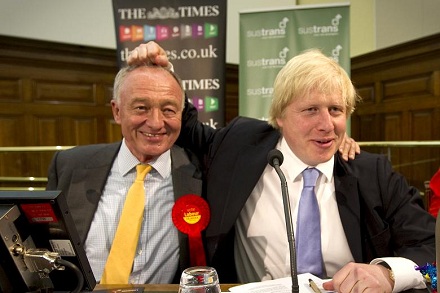After placing second in a by-election in Rotherham last Thursday, the United Kingdom Independence Party (UKIP) has vaunted to the center of British politics, with newsmakers wondering whether UKIP will, after two decades, finally emerge as a real force in British politics.![]()
The by-election, which resulted after Denis MacShane, a Labour MP, resigned due to the ongoing expenses scandal (MacShane had submitted 19 invoices for reimbursement for non-covered expenses), should have been a non-event. One Labour MP was replaced by another Labour MP, Sarah Champion, who won over 46% of the vote, which was actually an improvement on Labour’s performance in the 2010 election, when MacShane won just 44.6%.
So why has the sleepy little constituency in South Yorkshire been treated like a political earthquake?
With 21.8% of the vote, UKIP’s second-place finish was its best-ever result in an election for the House of Commons.
UKIP was founded by Conservative Party rebels in 1993 in opposition to the Maastricht treaty (the European Union treaty that established the single currency). Its primary characteristic as a party is its eurosceptic nature, but its ‘pro-British’ posture means that it has adopted harsher anti-immigration and anti-Muslim stances than any of the three major UK parties, notwithstanding a robust strain of euroscepticism within the governing Conservatives under prime minister David Cameron.
Cameron famously referred to UKIP as a bunch of ‘fruitcakes, loonies and closet racists’ in 2006 shortly after winning the Conservative leadership. It was probably not far from the truth in 2006, and it’s probably not far from the truth today. Despite the hand-wringing across England, UKIP is not necessarily any stronger or weaker than it already was before last week’s by-election — and winning about one-fifth of the total vote is hardly dominant. Part of its ‘success’ comes from controversy surrounding the local Labour-dominated council removing three children from foster parents, apparently on the basis that the foster parents were UKIP members.
Nigel Farage, UKIP’s leader (pictured above) declared after the by-election that UKIP is ascendant:
“We have established ourselves now as the third force in British politics. We have beaten the Lib Dems in all forms of elections over the course of this year. We are clearly and consistently now above the Lib Dems in the opinion polls.
“There is an upward trend. And I think the UKIP message is resonating with voters and not just Tory voters. There are plenty of voters, particularly in the north of England, coming to us from Labour and the Lib Dems.”
Farage, who’s known less for statecraft than for his stunts at the European Parliament (he’s been an MEP since 1999), would certainly like to think so.
But despite clear signs that UKIP would indeed make gains if the 2014 European elections and the 2015 general election were held today, UKIP is unlikely to become a truly powerful force in UK politics anytime soon.
Here are five reasons why. Continue reading Despite by-election result, UKIP is still a bunch of ‘fruitcakes, loonies and closet racists’






